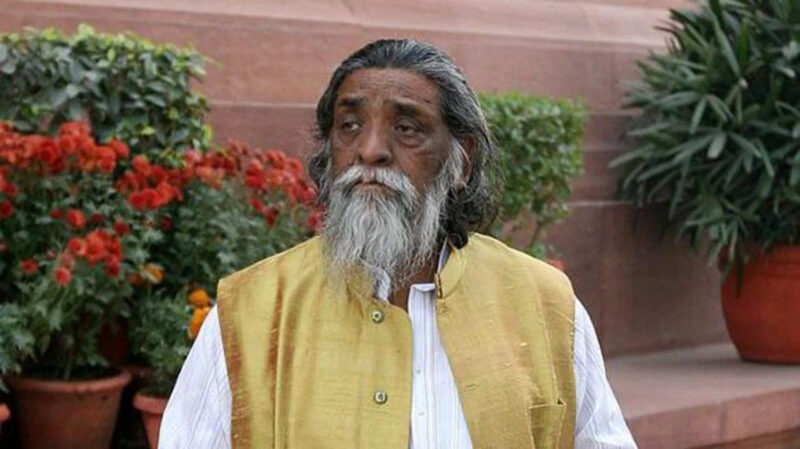 Veteran tribal leader, Jharkhand Mukti Morcha (JMM) patriarch and three-time Chief Minister Shibu Soren died in New Delhi on 4 August 2025, aged 81. He had been under treatment for kidney-related complications at Sir Ganga Ram Hospital since late June and passed away peacefully with his family at his bedside.
Veteran tribal leader, Jharkhand Mukti Morcha (JMM) patriarch and three-time Chief Minister Shibu Soren died in New Delhi on 4 August 2025, aged 81. He had been under treatment for kidney-related complications at Sir Ganga Ram Hospital since late June and passed away peacefully with his family at his bedside.
A Nation’s Condolences
President Droupadi Murmu paid tribute, calling his demise “a big loss in the space of social justice,” and lauding his lifelong defence of tribal identity and the creation of Jharkhand.
Prime Minister Narendra Modi visited the hospital in person, later remembering Soren as “a grassroots leader who rose through the ranks of public life with unwavering dedication to the people… particularly passionate about empowering tribal communities, the poor and downtrodden.”
Image
Early Life and the Spark of Resistance
Born on 11 January 1944 in Nemra, a Santhal village in today’s Ramgarh district, Soren (christened Shivlal, later enrolled as Shivcharan Manjhi) lost his father Sobaran Manjhi to money-lender hired goons when he was only fifteen. The traumatic murder propelled him to abandon school and fight the exploitation of Adivasi cultivators.
Forging a Political Vanguard
Soren’s activism quickly found organisational form. At eighteen he set up the Santhal Navyuvak Sangh to mobilise tribal youth and, in 1972, co-founded the Jharkhand Mukti Morcha with A.K. Roy and Binod Bihari Mahato, giving the fledgling statehood movement its enduring political vehicle.
Parliamentary Veteran and Fleeting Chief-Ministerships
First elected to the Lok Sabha from Dumka in 1980, Soren went on to win the seat eight times across four decades. He also served in the Rajya Sabha twice, the last term beginning in June 2020. Between 2005 and 2010 he became Chief Minister of Jharkhand on three occasions, though coalition turbulence limited him to a total of roughly ten months in office.
At the Centre, he headed the Coal Ministry thrice (2004–06), briefly lending tribal representation to the Union Cabinet.
Architect of Jharkhand
Soren’s true monument is the state he helped carve from the southern districts of Bihar. For nearly thirty years he led mass rallies, rail-roko agitations and legislative negotiations around the slogan “Jal, Jangal, Zameen”—water, forest, land—until Jharkhand was born on 15 November 2000. His movement broadened the tribal question to embrace all marginalised sections, giving Jharkhand politics a strongly social-justice hue.
Shadows of Controversy
Public life brought daunting legal battles. In 2006 a Delhi trial court convicted him in the 1994 murder of aide Shashinath Jha, making him the first serving Union minister sentenced to life imprisonment; but the Delhi High Court acquitted him in 2007, and the Supreme Court upheld the acquittal in 2018, citing lack of evidence.
He was likewise cleared in the 1975 Chirudih killings and a separate 1974 double-murder case, leaving his reputation politically bruised but legally intact.
Family and Succession
Soren is survived by his wife Roopi Kisku and four children. Eldest son Durga, once seen as heir apparent, died suddenly in 2009, an event that propelled second son Hemant into frontline politics. Hemant Soren, born on 10 August 1975, now serves as the Chief Minister of Jharkhand, a position he has held since July 2024, marking his third term. As JMM president and MLA from Barhait, Hemant has carried forward his father’s political legacy, focusing on tribal welfare, social justice, and administrative reforms. His leadership has been marked by initiatives addressing land rights, rural development, and a push for recognition of the Sarna religious code. Hemant’s role in consoling the state during his father’s demise symbolised both a deeply personal loss and the passing of a generational torch. Younger son Basant is the party’s youth face and MLA from Dumka, while daughter Anjali heads the JMM’s Odisha unit.
Legacy
Few Indian politicians personify the transition from grassroots revolt to state-craft as vividly as Shibu Soren. Revered as “Dishom Guru” (“people’s guide”) across the Chota Nagpur plateau, he turned a father’s martyrdom into a mass struggle that redrew India’s map, reclaimed tribal land and mainstreamed Adivasi voices in Parliament. Despite short stints in power and brushes with the law, his life’s arc—from forest meetings to the Rajya Sabha—continues to inspire movements for dignity and self-determination nationwide. His passing closes a tumultuous chapter of Jharkhand’s history, even as the gauntlet passes to a dynasty and a state indelibly shaped by his dream.